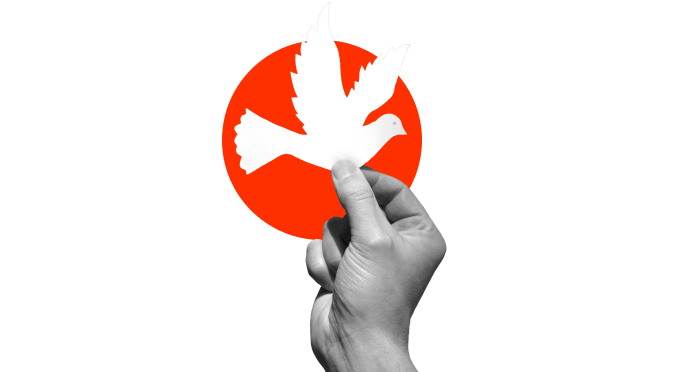ACF's history
The Anti-Corruption Foundation (ACF) started by publishing investigations into government procurement on Navalny’s blog. Year by year, as we uncovered corruption on an ever greater scale, the pressure from the authorities on Alexei and his team also increased.
Timeline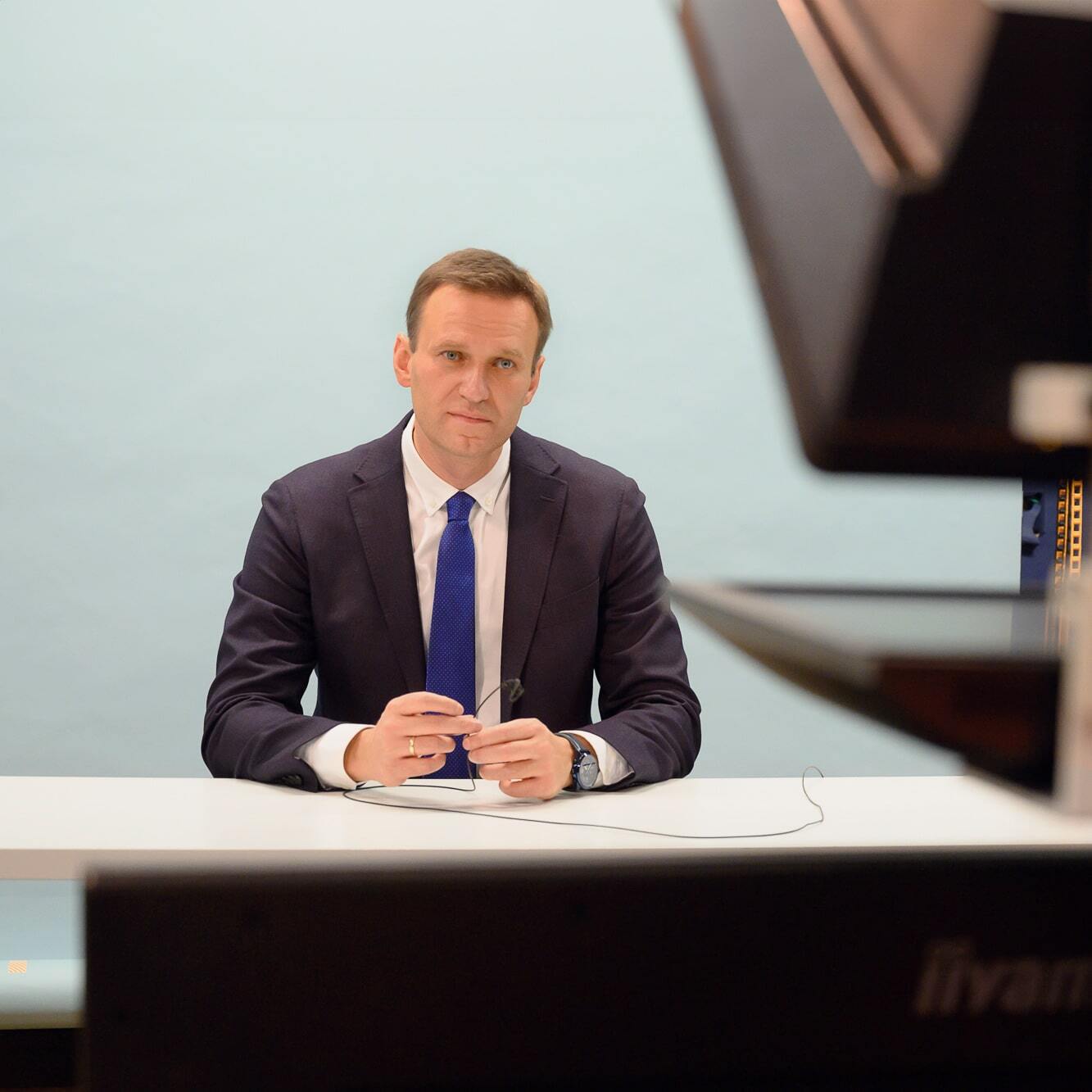
2011
The Start of the ACF
On September 9, 2011, Alexei Navalny registered the Anti-Corruption Foundation (ACF). The ACF’s predecessor was the RosPil project, which Navalny began in 2010. RosPil investigated the state procurement portal, exposed corruption schemes, and brought them to the attention of regulatory authorities and the public.
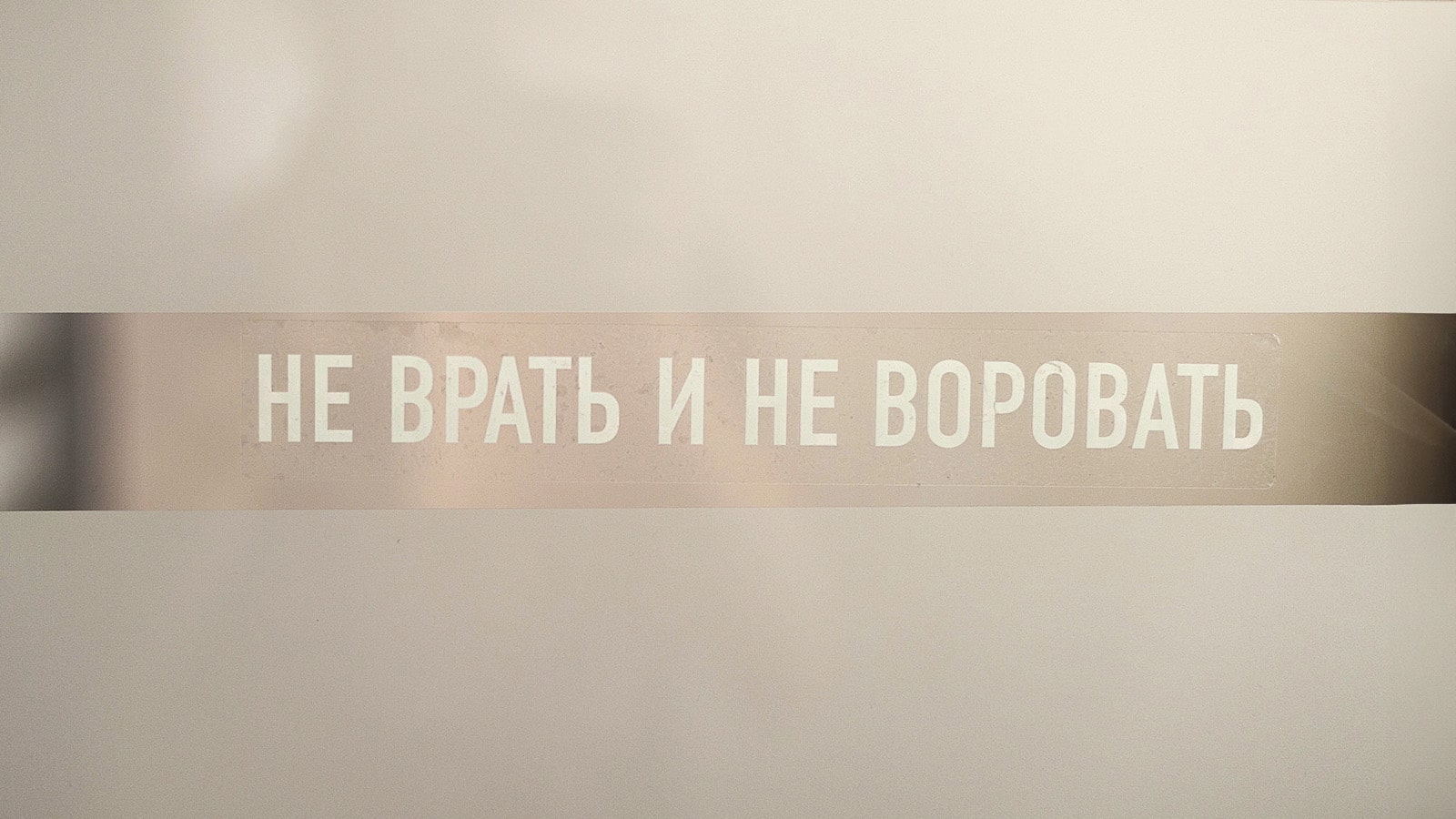
“Don't lie and don't steal”
Protests of 2012
In 2012, mass protests erupted across Russia. People rallied against electoral fraud during the presidential and State Duma elections.
One of the leaders of this protest movement was young politician and founder of the ACF Alexei Navalny.
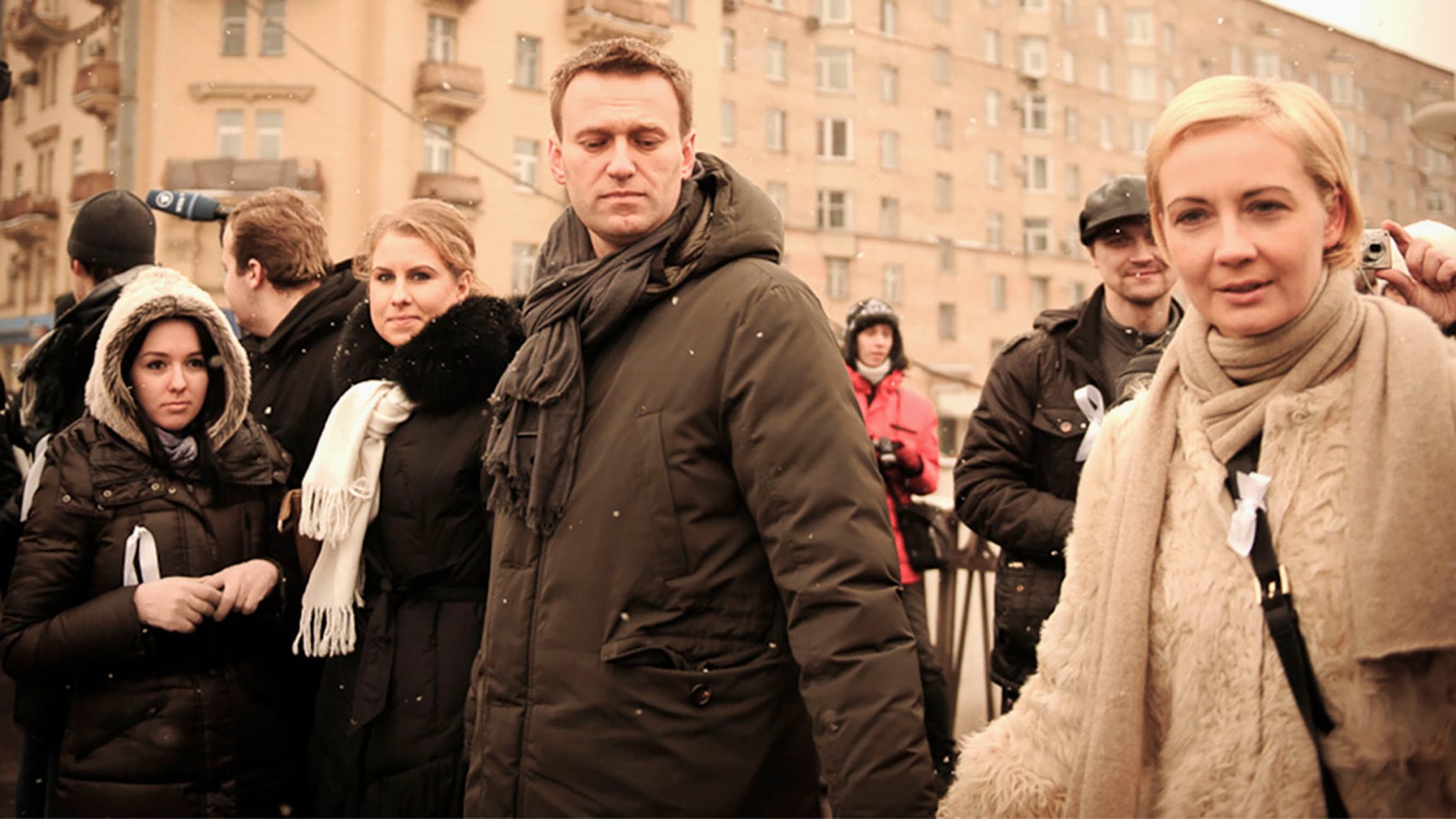
The Good Truth Machine
On May 29, 2012, the ACF launched its first project—the Good Truth Machine. With the help of volunteers, we distributed leaflets exposing government corruption and theft. Alexei described this project as the antithesis of the Russian state media, which he referred to as the 'Evil Machine of Propaganda.'
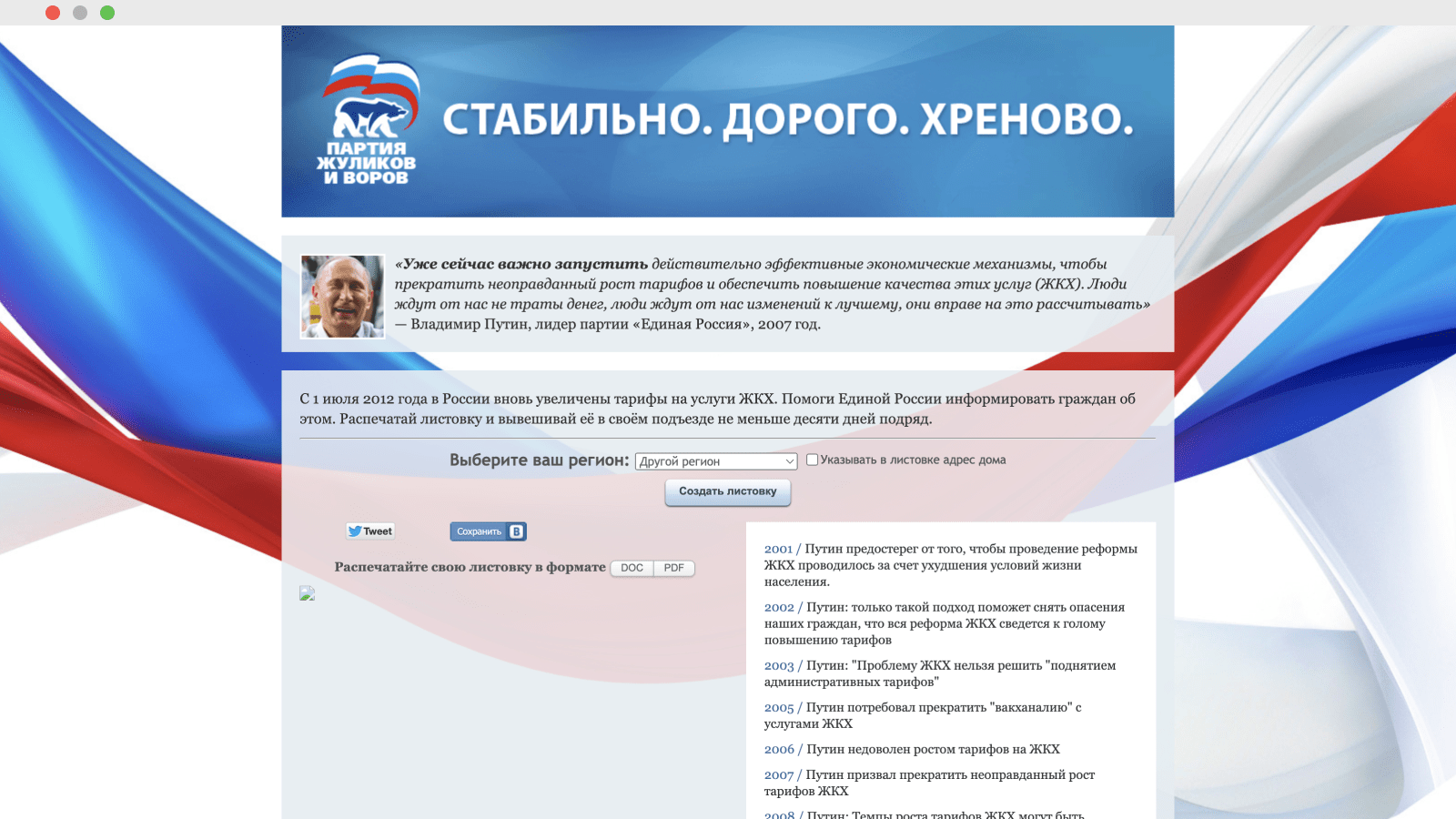
A banner on the Good Truth Machine website ridicules the hypocrisy of Putin's United Russia Party. The name has been changed to "The Party of Crooks and Thieves," with the slogan: "Steadily, Expensive, and Absolutely Horrible.”
Alexei Navalny’s Mayoral Campaign
In 2013, Alexei Navalny ran for mayor of Moscow. We helped Alexei run one of the most vibrant independent election campaigns in Russia's history. On election day, Navalny won 27% of the vote and came in second, while United Russia’s Sergei Sobyanin avoided the second round only thanks to vote rigging.
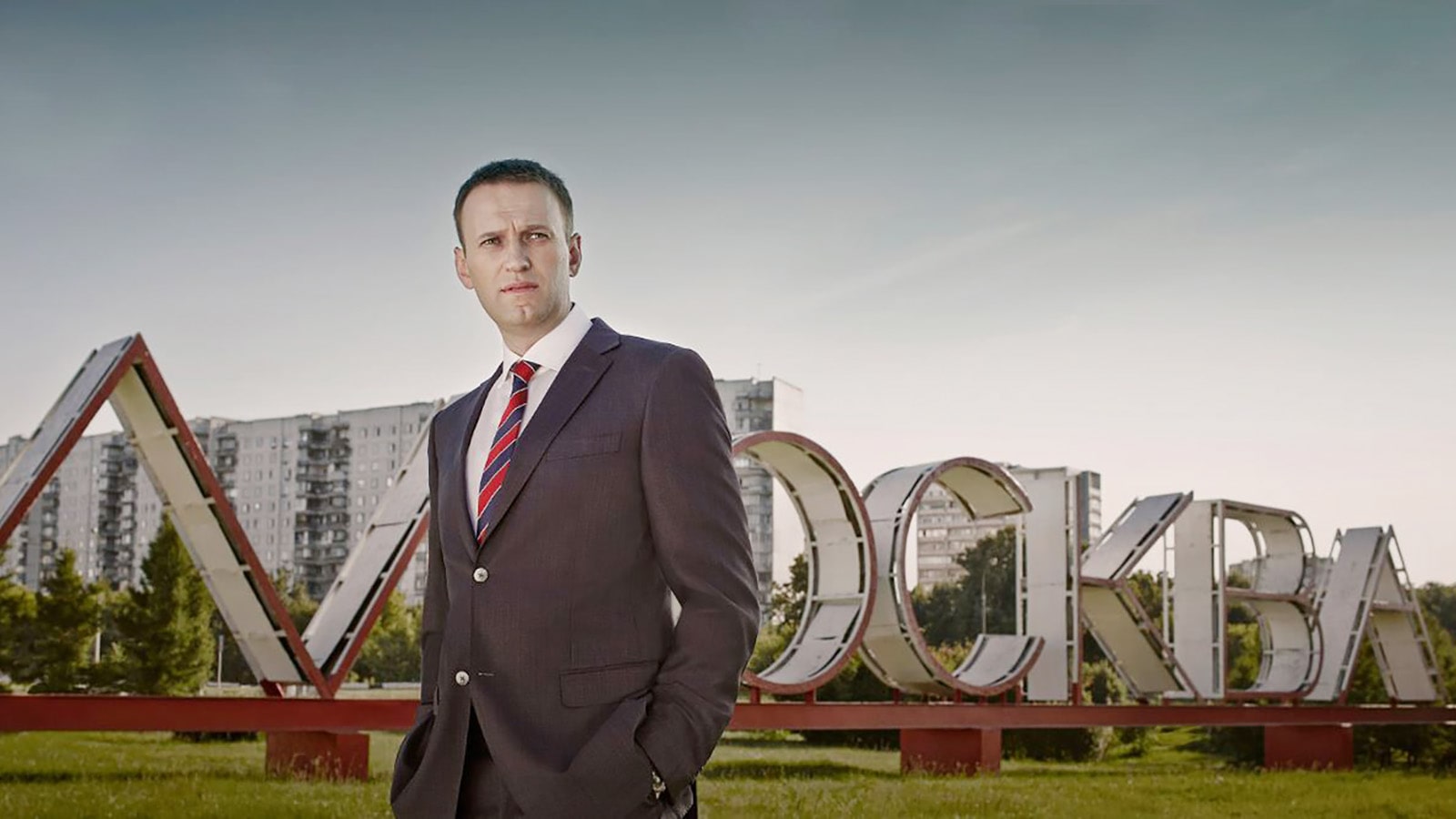
The Adventures of Yakunin the Piglet
In 2013, the ACF published a high-profile investigation into the corrupt head of the Russian Railways, Vladimir Yakunin. We exposed the illegal seizure of a 27,000 m² plot of land and a luxurious estate, which even included a special storage area for fur coats. Incidentally, Rosreestr, the state agency for the registry of real estate, then acknowledged this violation. To attract public attention, we even released a humorous comic book about Yakunin's offshore empire.
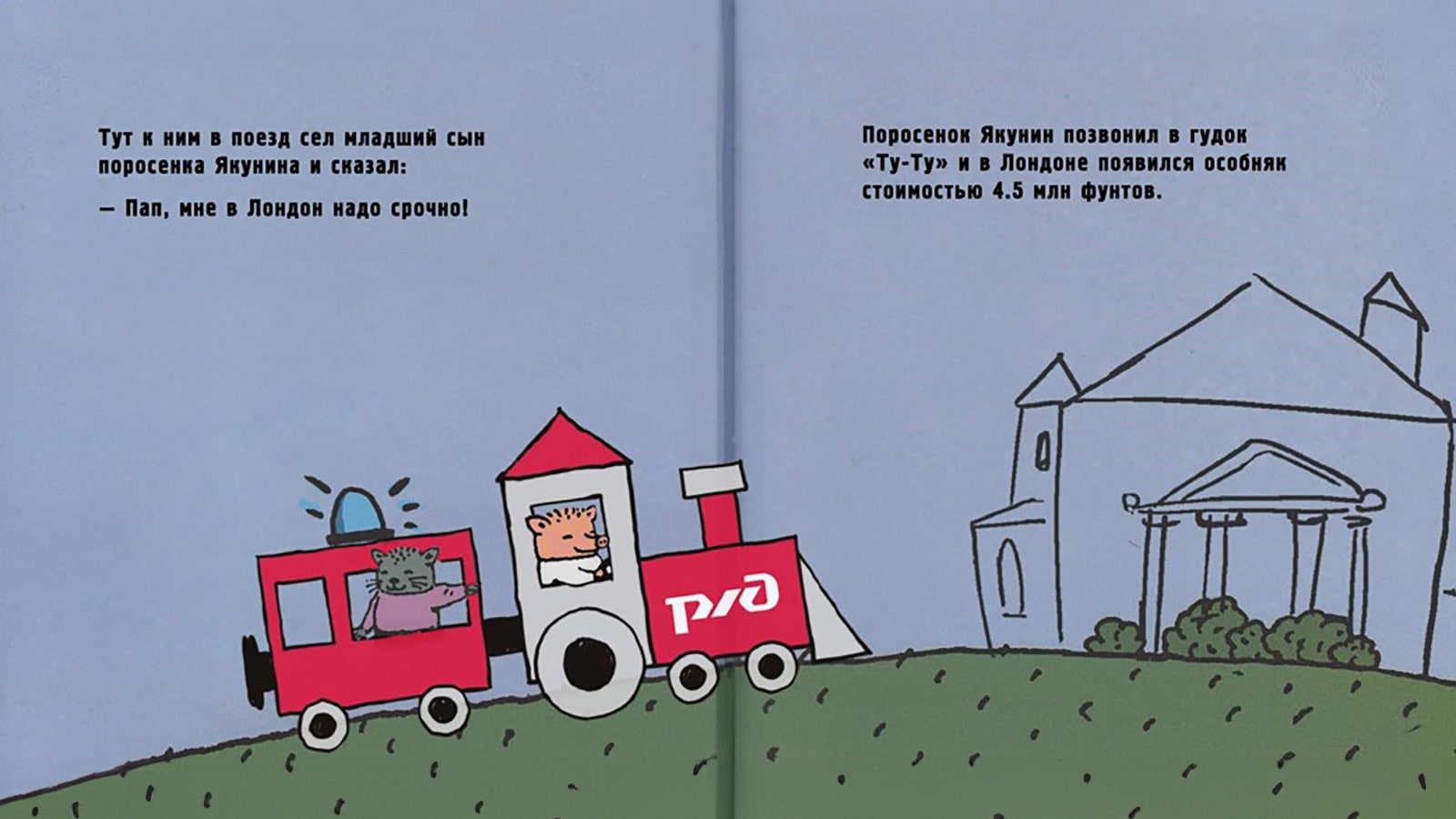
"Then Yakunin the piglet’s youngest son got on the train with them and said, 'Dad, I need to go to London ASAP!'
Yakunin the piglet honked the horn, and suddenly, a 4.5 million-pound mansion in London appeared."
Pines Dacha Cooperative
This one of the ACF's early but iconic investigations. We uncovered an entire dacha cooperative—undeclared real estate owned by the top echelon of the United Russia Party. We got a paraglider to film the property from the air for this investigation. After this, the ACF began using their now infamous drones.

Sochi Olympics Investigation
In the lead up to the Sochi Olympics, we released a major investigation exposing how the event had become a hotbed for corruption. For instance, the construction costs for at least ten facilities were overpriced by 1.5 to 2.5 times, while the contractors had close ties to government officials.
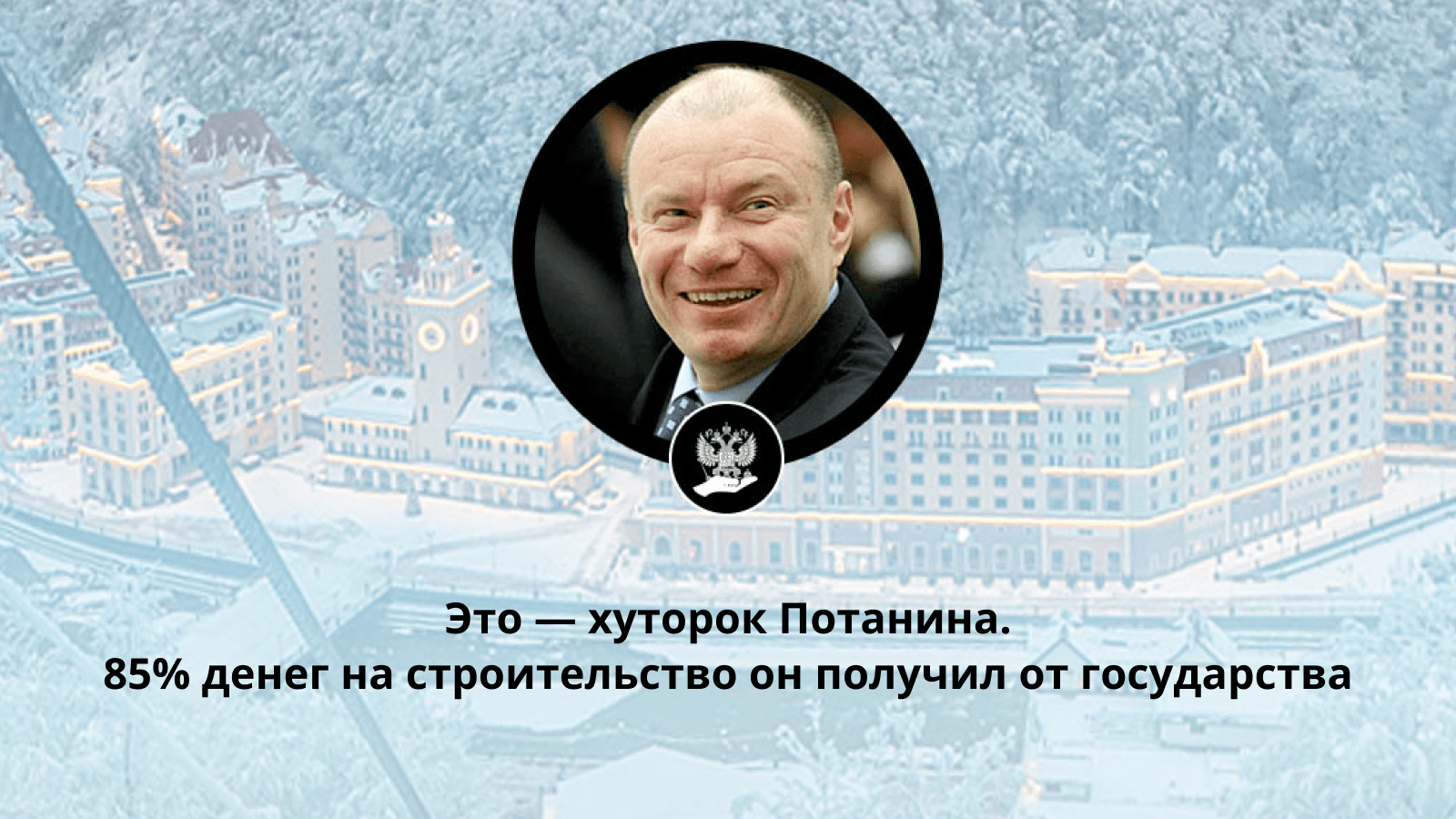
"This is Potanin’s little hamlet. He received 85% of the funds for its construction from the government."
The March of Peace
That same year, the ACF co-organized the March of Peace, a protest against the annexation of Crimea and the start of Putin's war in Donbas. Since 2014, together with Alexei Navalny, we have demanded an end to this war and the withdrawal of troops from Ukraine.
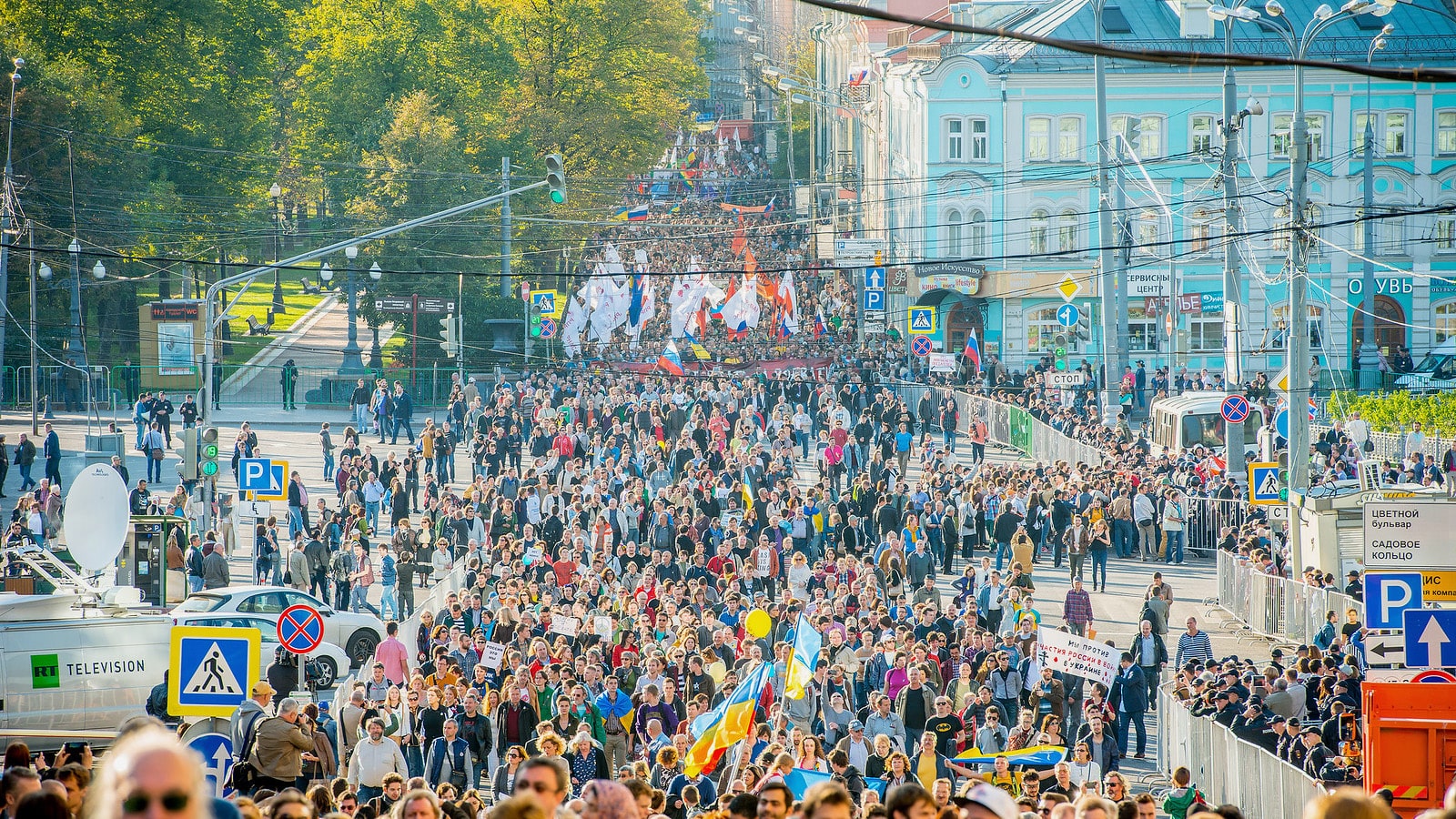
The Yves Rocher Verdict
On December 30, 2014, Alexei Navalny was sentenced to 3.5 years on probation in a fabricated case. His brother Oleg received the same sentence but was imprisoned. While in the colony, Oleg faced inhumane treatment. He was sent to the SHIZO (punishment cell) seven times on contrived grounds and he endured torture-like conditions there without any contact with the outside world.
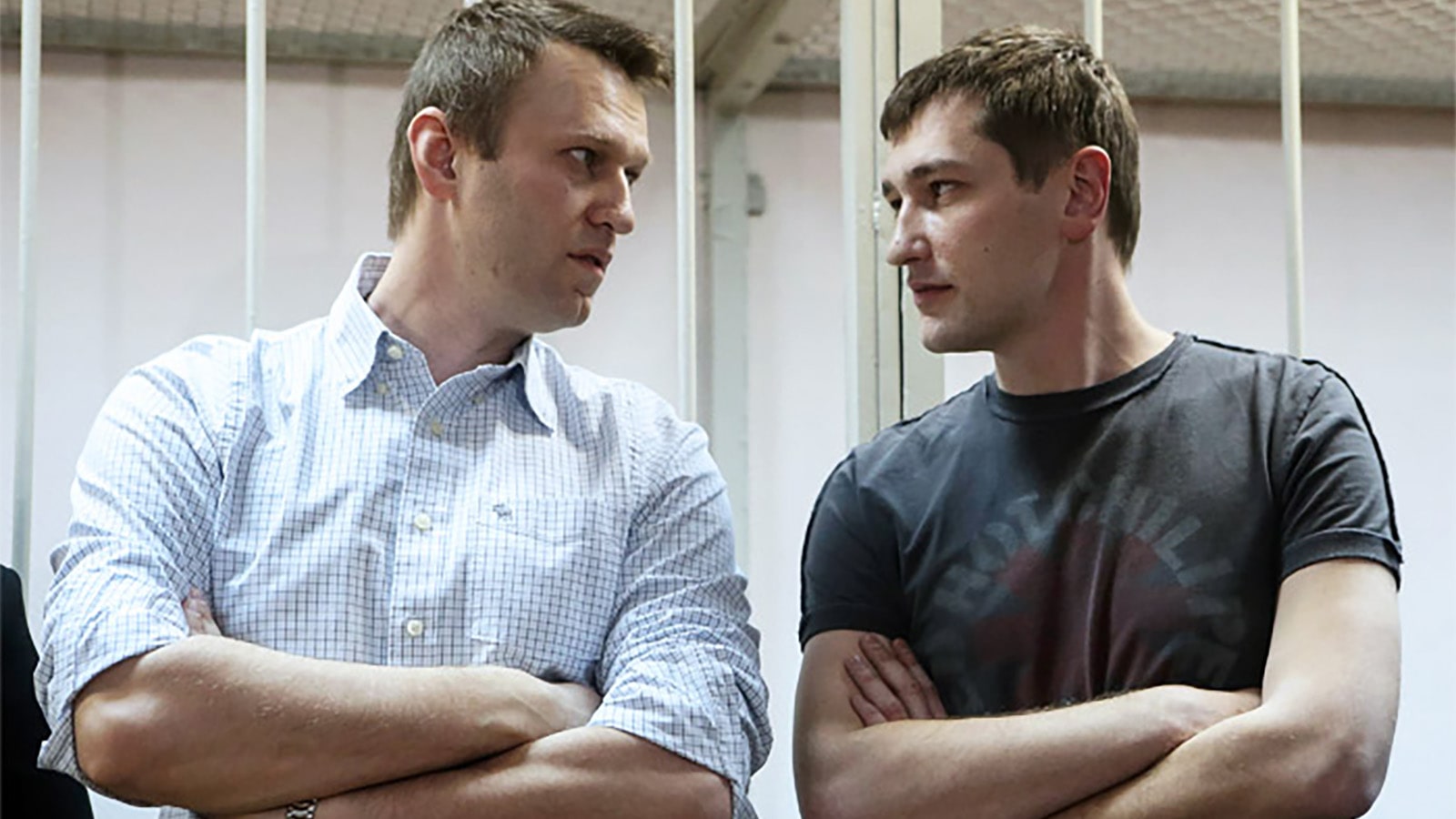
#20—For Article 20
As part of the #20 initiative, we campaigned for Russia to ratify Article 20 of the UN Convention, which mandates criminal punishment for illicit enrichment. The ACF’s lawyers drafted their own bill, and 100,000 Russians supported it on the ROI (Russian Public Initiative) website. This automatically required the government to consider this initiative. It was reviewed by a special commission, but in the end, officials found some spurious reasons not to pass our bill to the State Duma.
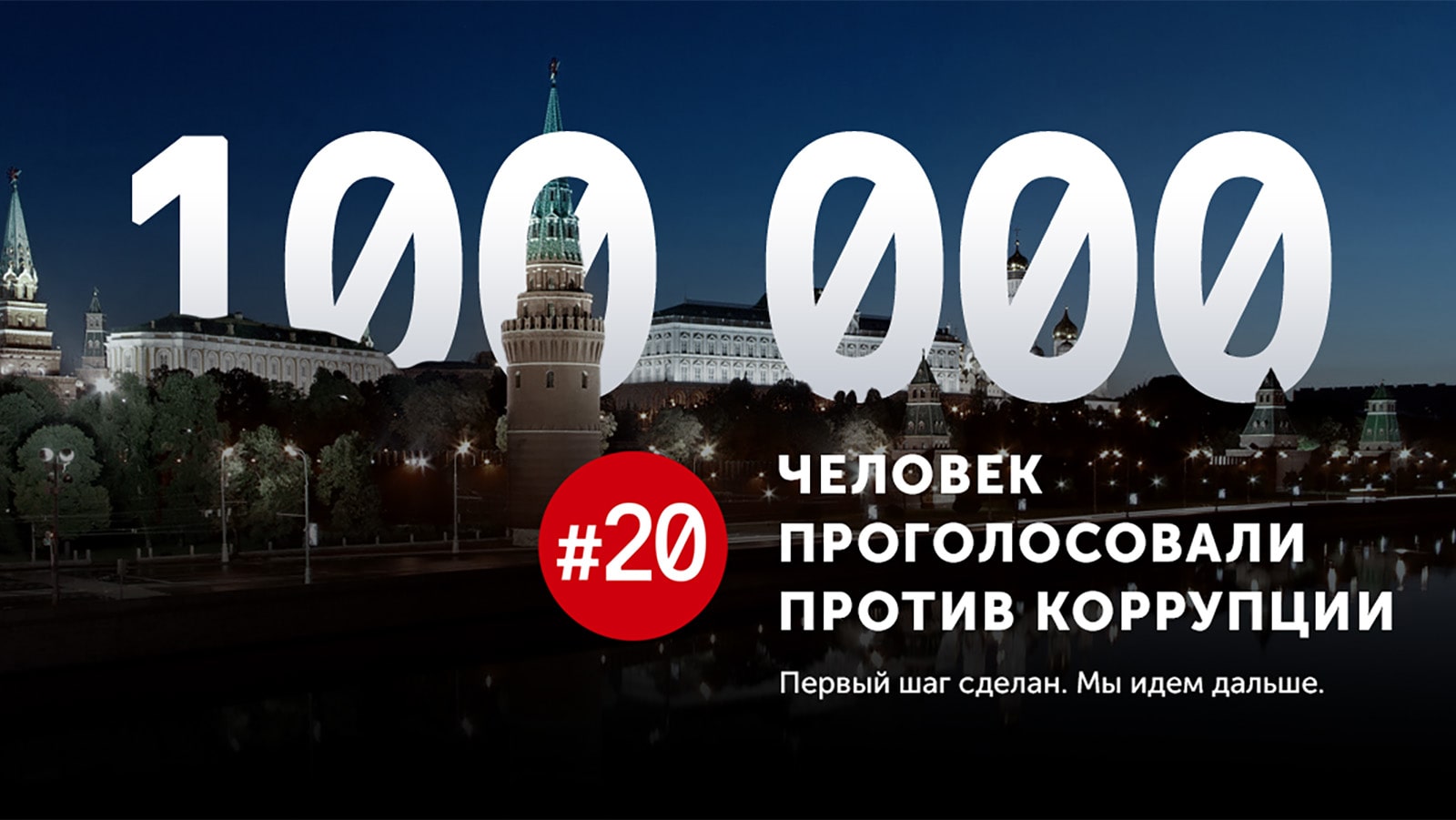
This picture shows that 100,000 Russians have signed our petition to include an anti-corruption article in the country's constitution.
Democratic Coalition and Regional Elections
In 2015, our Progress Party joined the Democratic Coalition, an alliance of opposition forces. We actively participated in regional elections, held large meetings with voters, and even organized primaries. Our candidates faced opposition from the government. Sergei Boyko, who was barred from running in Novosibirsk, went on a hunger strike and ended up in intensive care. ACF investigator Georgy Alburov was unlawfully excluded from the election in Magadan, and a member of his team was beaten up.
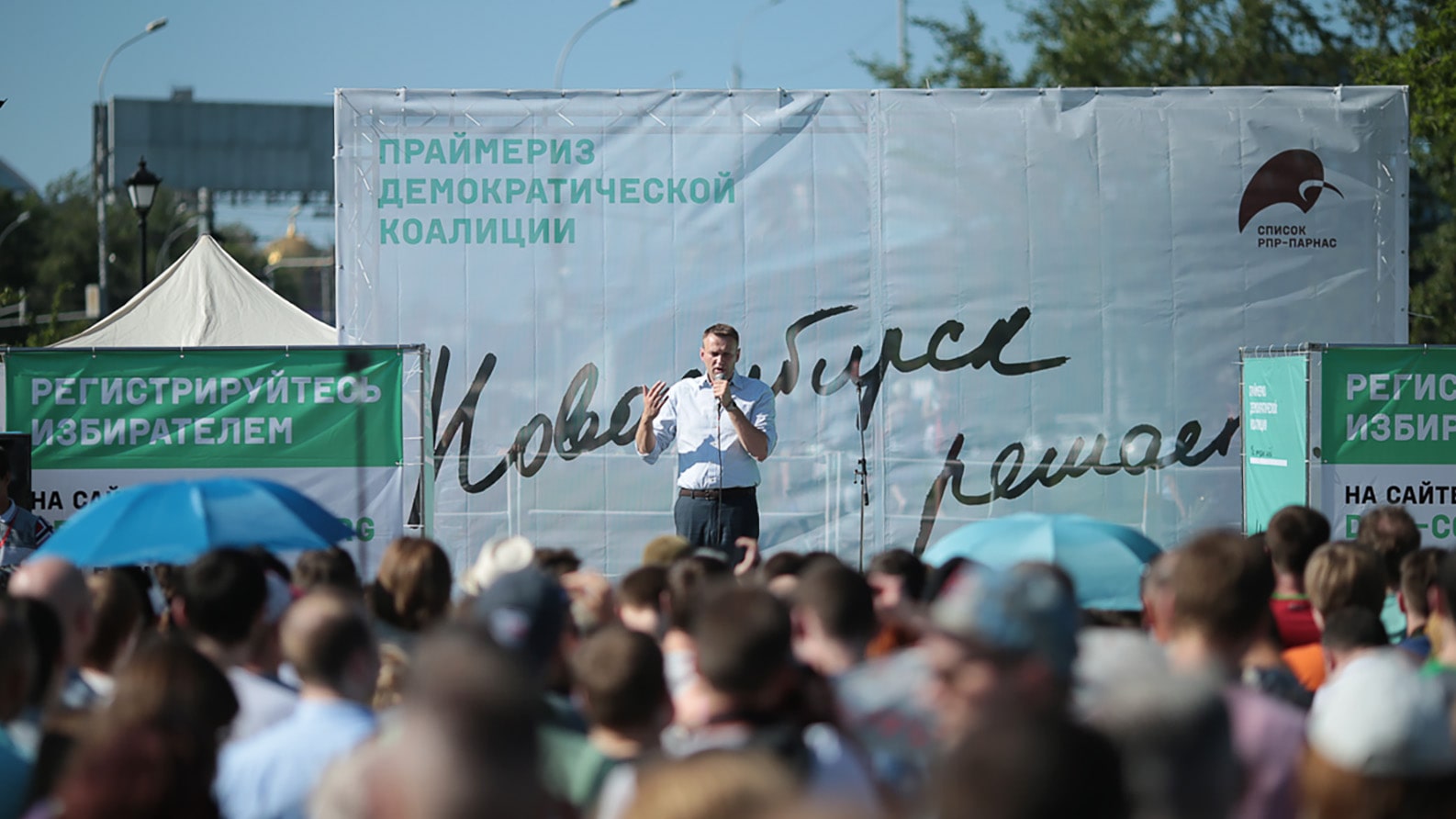
Alexei Navalny speaks in front of the slogan "Novosibirsk decides!"
Chaika—ACF’s First Major Investigative Film
This was the first time we made an investigation in the format of a full-length documentary film. We exposed the financial machinations of Prosecutor General Yuri Chaika’s family and associates. They laundered money, bought luxurious properties abroad, and Chaika’s son was linked to the Tsapki gang. The 43-minute film was watched over 26 million times, and in 2016, a draft law was proposed as a result of the investigation, banning spouses and adult children of officials from owning businesses. However, the draft law did not pass.

Support ACF
Your donations will fund new high-profile investigations.
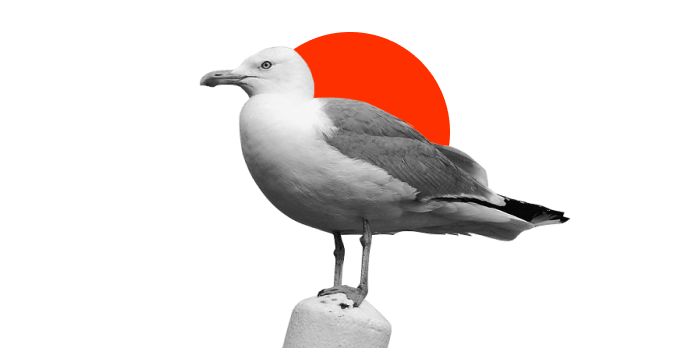
Barvikha Elections
In 2016, President Vladimir Putin appointed Ella Pamfilova as head of the Central Election Commission (CEC). To test the integrity of the new CEC, we decided to run our candidates in the Barvikha elections.
The authorities quickly retaliated. A criminal case was opened against Ivan Zhdanov, and during the early voting period, our observers documented widespread ballot-stuffing for United Russia candidates. We managed to create a public outcry and attract a lot of attention to this, ultimately forcing Ella Pamfilova to annul the election results.
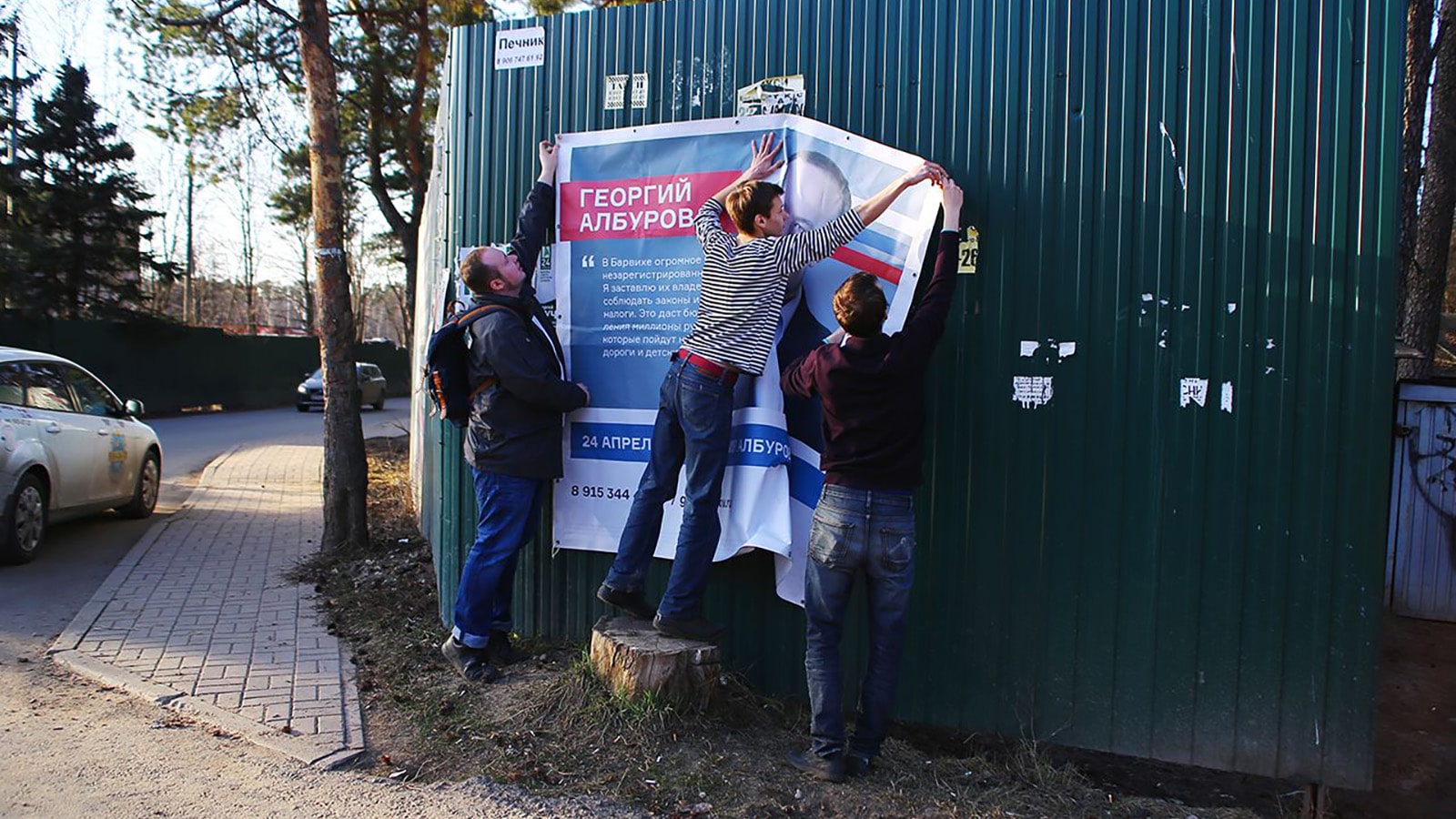
Shuvalov's Corgis
We found out that Deputy Prime Minister Igor Shuvalov’s family made 25 flights to their foreign properties in an undeclared private jet—and this was just in 2016. Moreover, the same jet was used another nine times to transport the official’s dogs to shows in Europe. Yes, that’s right—Shuvalov’s corgis traveled on a private business jet and visited foreign countries more times in one year than the average Russian does in a lifetime. Plus, this is also ACF’s cutest investigation. Why? Watch this video to find out.

Navalny for President
At the end of 2016, Alexei Navalny announced his candidacy for the 2018 Russian presidential election, marking the start of the most vibrant presidential campaign in the country's history.
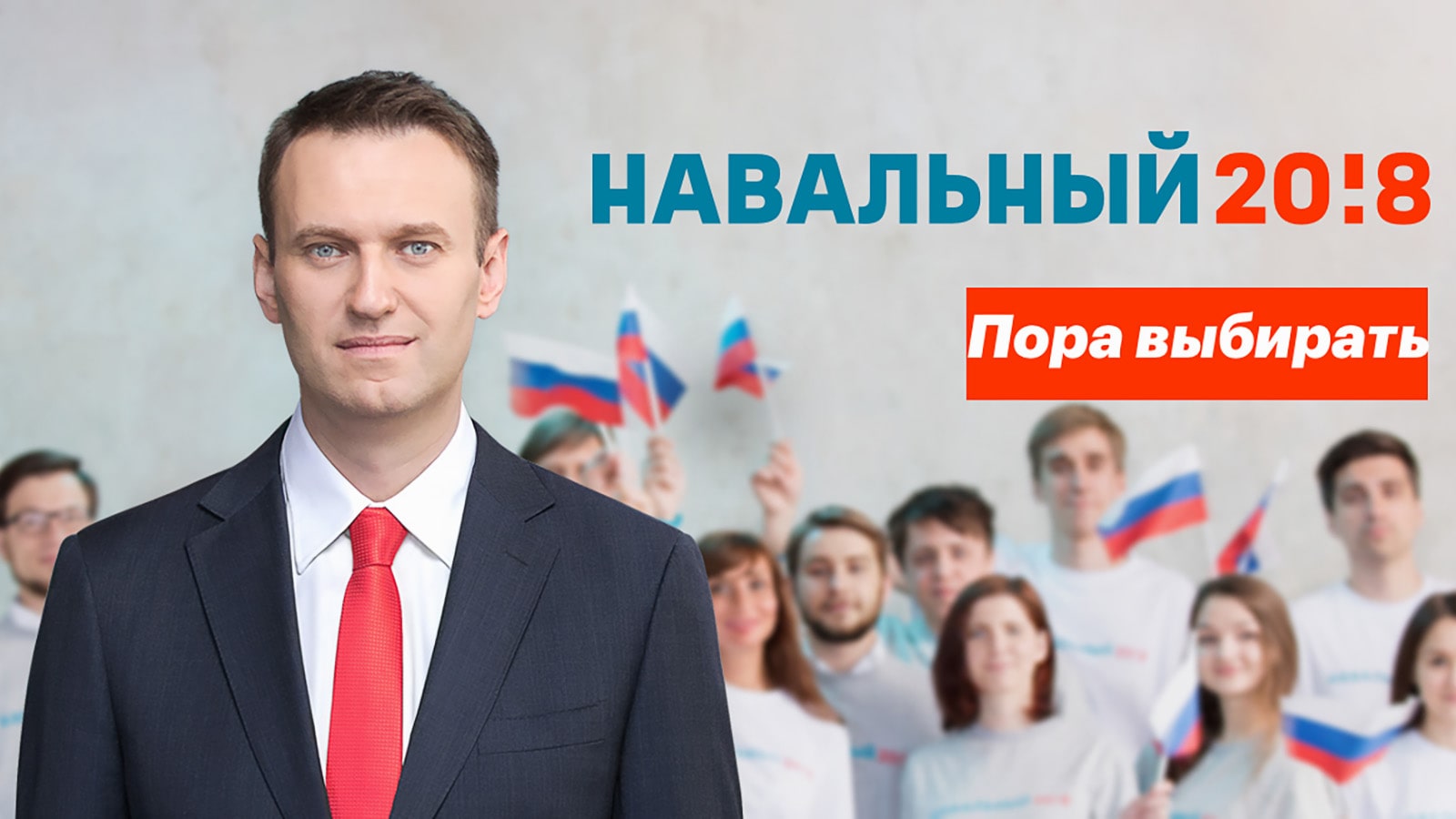
Navalny's Headquarters
To run for president, Navalny needed to collect 7,500 signatures from at least 40 Russian regions. As part of the campaign, we opened 81 regional headquarters across Russia. These offices brought politics back to the regions and enabled us to run the most dynamic election campaign, engaging tens of thousands of volunteers nationwide.
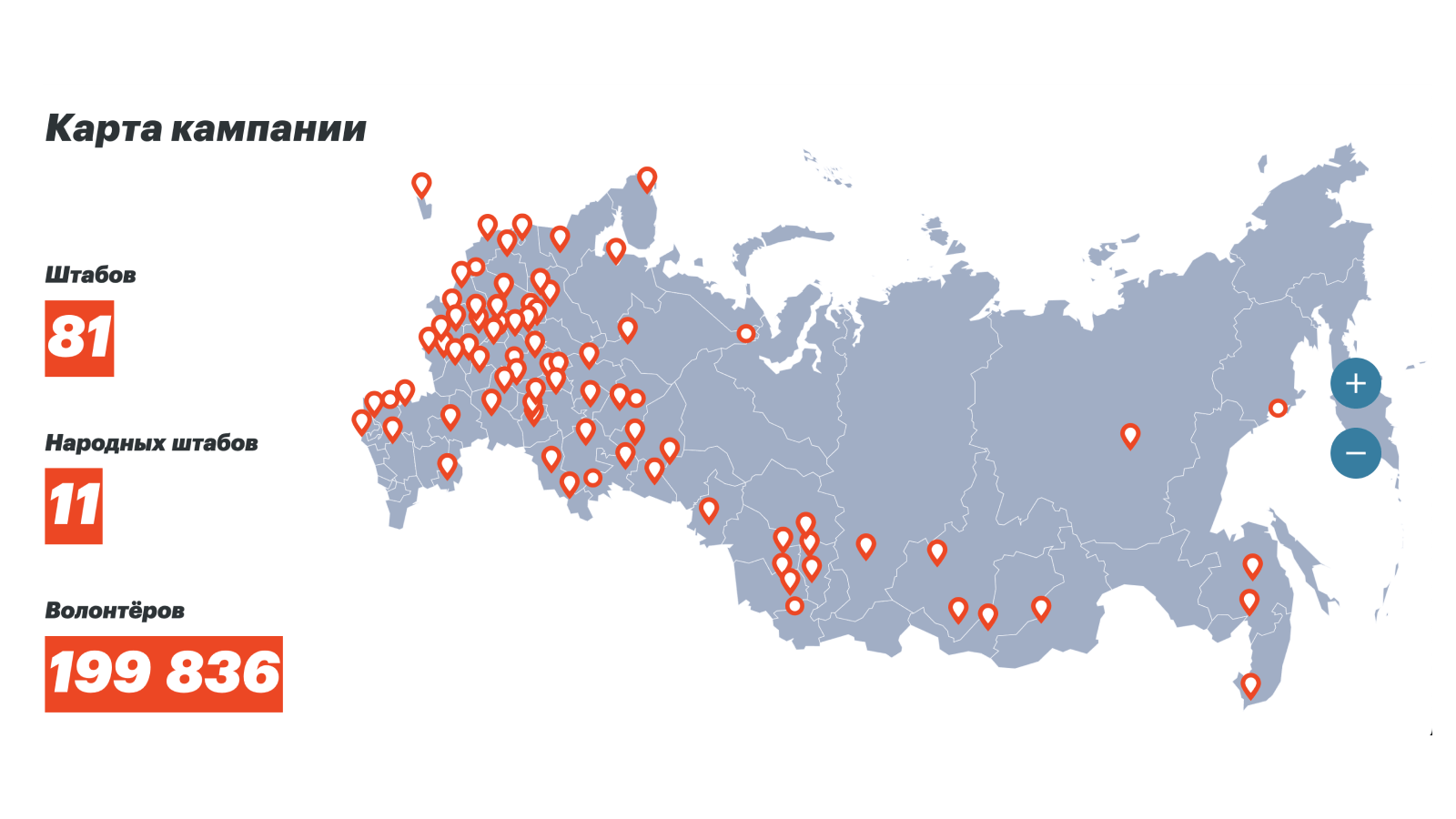
The map of the campaign.
Don't Call Him Dimon
Our second major documentary-style investigation. We revealed unprecedented corruption involving former President and Prime Minister Dmitry Medvedev. The film’s release was followed by mass protests across the country, and Dimon was forced to respond—he dismissed the investigation’s findings as “nonsense, mud, and fruit compote.” However, this did nothing to save his career or approval rating—they both hit rock bottom and never recovered.

Navalny LIVE
During the presidential campaign, we launched the Navalny LIVE YouTube channel—a platform for Alexei's legendary Thursday broadcasts and livestreams of large events. These broadcasts became not only a significant milestone in the history of the ACF but also set a trend for all political YouTube channels in Russia.
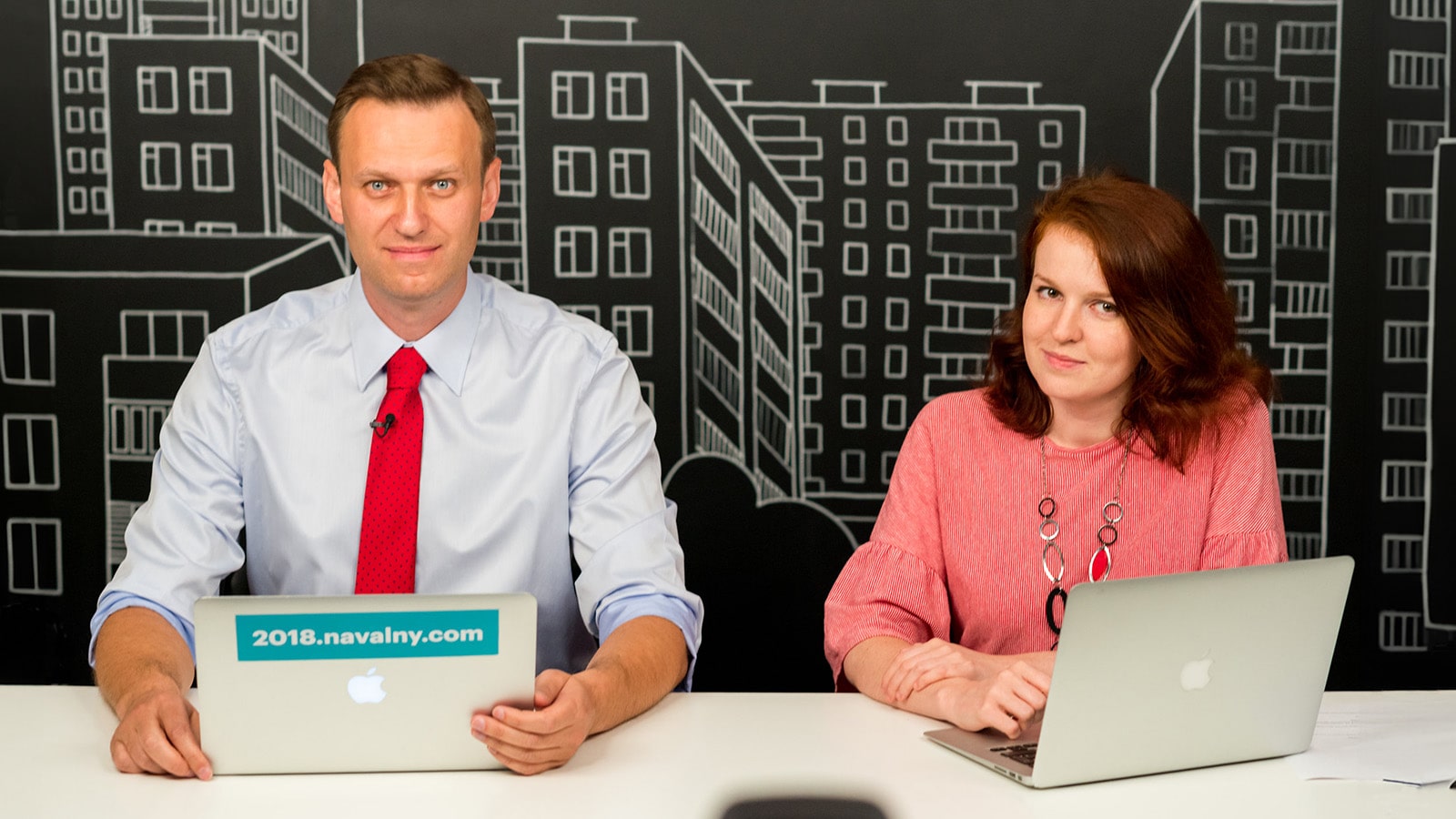
March 26 Protests
After we published the investigation into Dmitry Medvedev, the authorities tried to just ignore it. Navalny then called on supporters to demand answers by taking to the streets and he announced that rallies would be held all over the country. On March 26, 2017, major protests erupted across Russia. It became evident that a vast number of people in Russia were dissatisfied with the corruption and usurpation of power by Putin and his entourage.
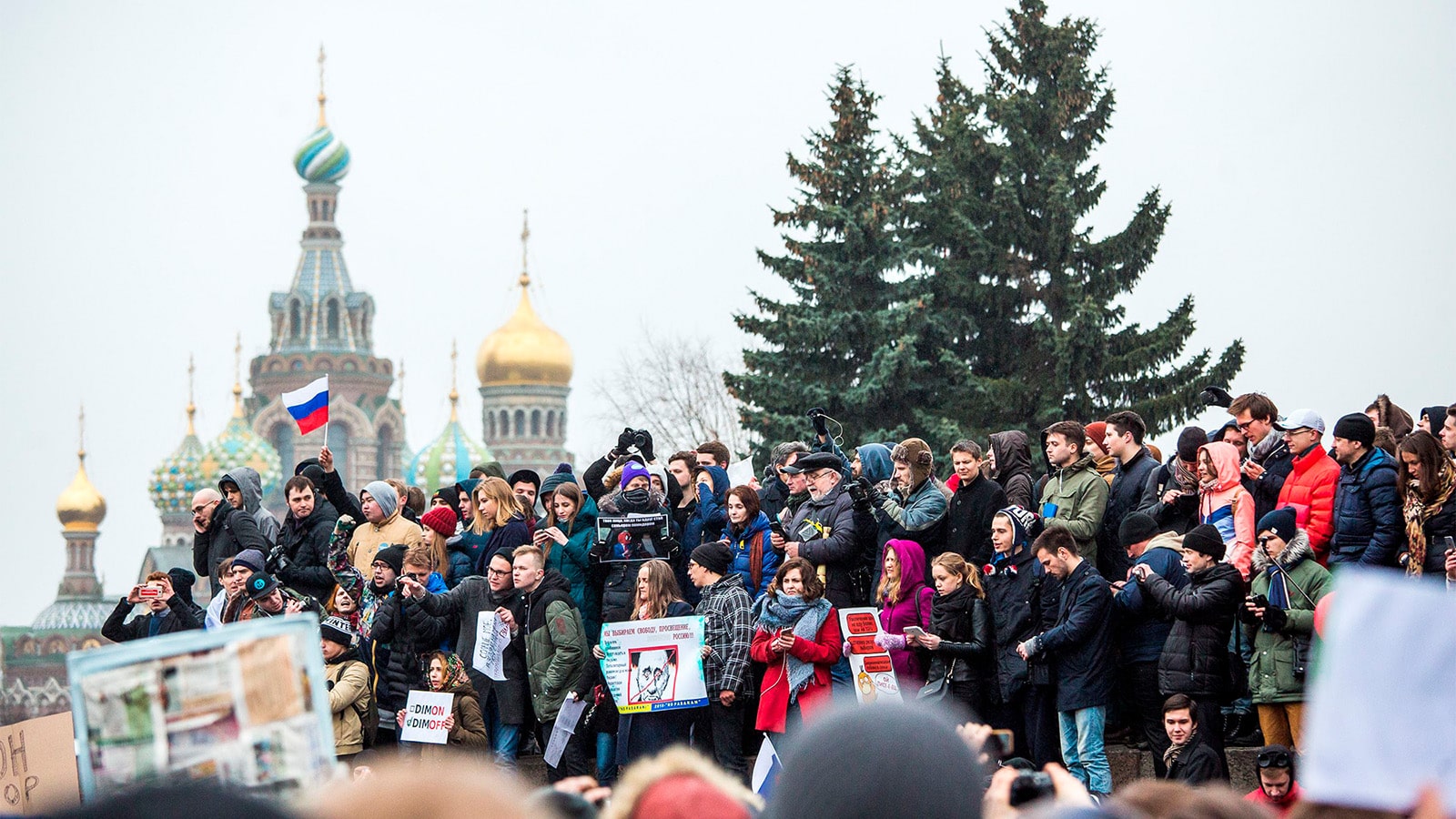
Voter Strike
Despite the fact that Navalny gained the support of over 300,000 Russians and initiative groups in 20 regions nominated him for president, the Central Election Commission unlawfully barred him from the elections. In response, Alexei announced a voter strike. Elections cannot be fair if the main competitor to Putin is banned from participating. The strategy was to prevent the Presidential Administration from ensuring high voter turnout and to refuse to recognize the results of a fraudulent process that allowed only approved candidates. At the same time, we deployed thousands of observers to polling stations to catch fraudsters red-handed.

'He Is Not Our Tsar' Protests
In response to yet another illegal reelection of Putin, Navalny announced nationwide protests under the slogan 'He Is Not Our Tsar' a day before the inauguration. The authorities reacted to public dissent with violence and arrested over 1,600 people across the country. Repressions against protesters became increasingly harsh. Despite this, Russians who were anti-Putin continued to take to the streets.

Protests Against the Increase in Retirement Age
In 2018, against the backdrop of the adoption of a deplorable law which raised the retirement age, we, alongside Navalny, organized mass protests in many regions of Russia.

Duel with Viktor Zolotov
In 2018, we released an investigation into how the leadership of the National Guard and Viktor Zolotov personally profit from food supplies. Zolotov recorded a video message challenging Navalny to a duel, threatening physical harm in the process. Alexei responded to Zolotov's challenge by proposing a public debate instead of a physical duel. Zolotov did not show up for the debate and decided to ignore Navalny's proposal for a discussion.

Smart Voting
In September, during the elections in Moscow and in other regions, we first implemented our Smart Voting strategy.This is a tactical voting strategy to get behind the strongest candidate running against United Russia. Alexei Navalny came up with the idea for Smart Voting while in detention in 2018.

Support ACF
Support the fight for fair elections.
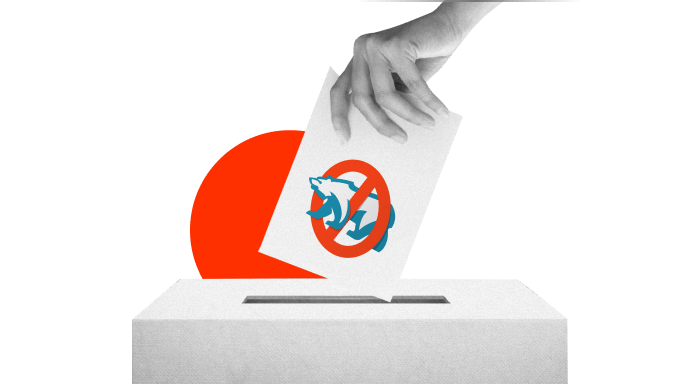
Moscow and St. Petersburg Elections
In 2019, Smart Voting achieved its first major success. In Moscow, St. Petersburg, and other regions, we managed to elect a large number of candidates which opposed United Russia.
The Moscow City Duma election campaign became the main political event of the year. We opened a signature collection center so people could sign up for opposition candidates in their district. When candidates were unlawfully barred, Moscow citizens continued to take to the streets under the slogan "Let Them In!" right up to the elections.
In St. Petersburg, our headquarters helped run campaigns for several hundred independent municipal candidates. Many of them succeeded in defeating United Russia members. The campaign in St. Petersburg faced police brutality and ballot falsifications.
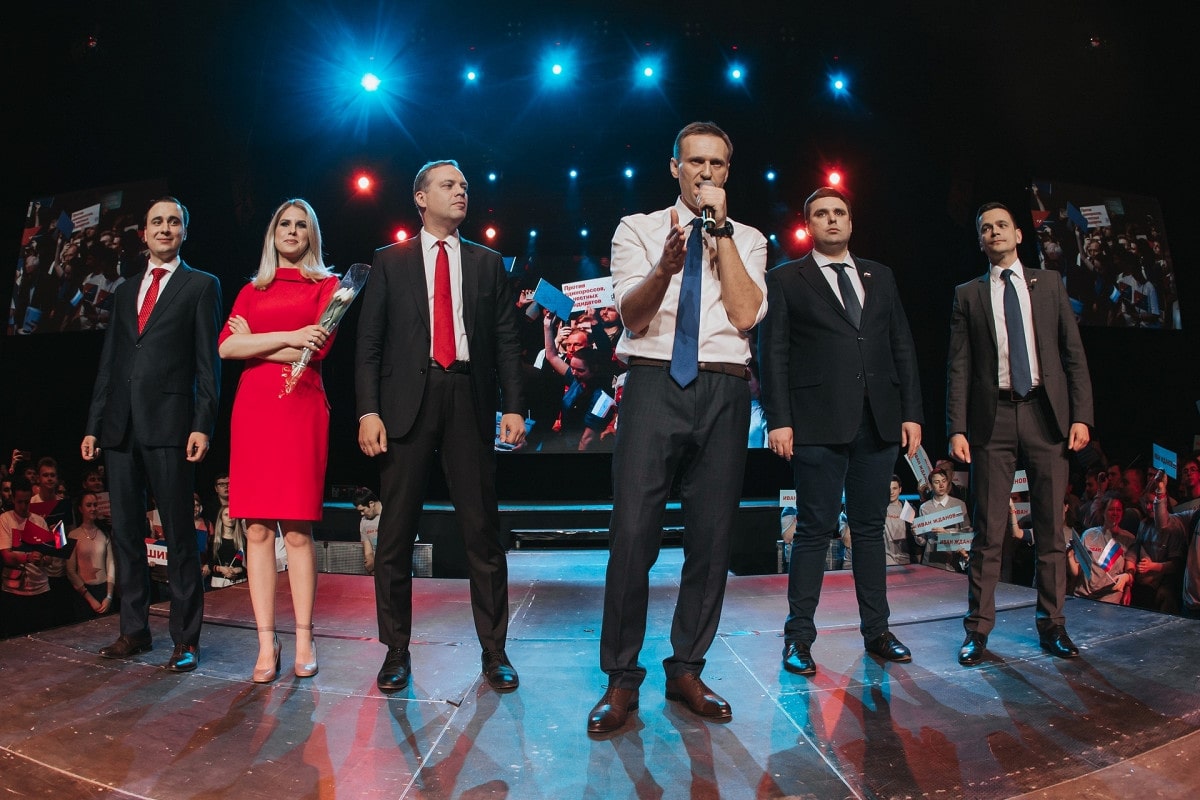
Navalny's Union
We launched a project to help public sector workers achieve fair wages and to force Putin to fulfill his own "May Decrees," which stipulated that public sector salaries should be no lower than the regional average. The ACF supported unions of doctors, teachers, and cultural workers, providing them with media coverage, legal support, and assistance in developing their own social networks and YouTube channels.

Kostin and Asker-Zade. Svetlana Medvedeva's Airplane
In December, we released an investigation into the very expensive relationship between VTB Bank head Andrei Kostin and the VGTRK propagandist Naile Asker-Zade. We found out that Kostin used VTB resources and taxpayer money to provide a luxurious life for his mistress. It also turned out that VTB provided a private jet for Svetlana Medvedeva, the wife of the former Russian president. This means that Kostin spent state funds not only on his mistress but also on bribing Medvedev's family.

5 Steps for Russia
During the COVID-19 pandemic, we developed a crisis response program consisting of five steps: a one-time payment package, special benefits to compensate for self-isolation, and tax and financial relief for small and medium-sized businesses. Over half a million Russians supported the demand to implement our program. According to the petition law, the government was obliged to consider the initiative, but officials refused to do so.

Poisoning of Alexei Navalny
On August 20, 2020, during a flight from Tomsk to Moscow, Alexei Navalny fell seriously ill. The plane made an emergency landing in Omsk, and Navalny was taken to a local hospital. The hospital's management, along with FSB agents, stalled for time, lied about his diagnosis and prevented friends and relatives from seeing Alexei. Two days later, thanks to widespread public support, Navalny was plucked from the hands of Putin's doctors and transported to the Charité Clinic in Berlin. Laboratory results later revealed that he had been poisoned with Novichok, a chemical warfare agent. On September 7, 2020, Alexei was brought out of a coma, and a week later, on September 14, he was disconnected from the ventilator. Navalny's life was saved.
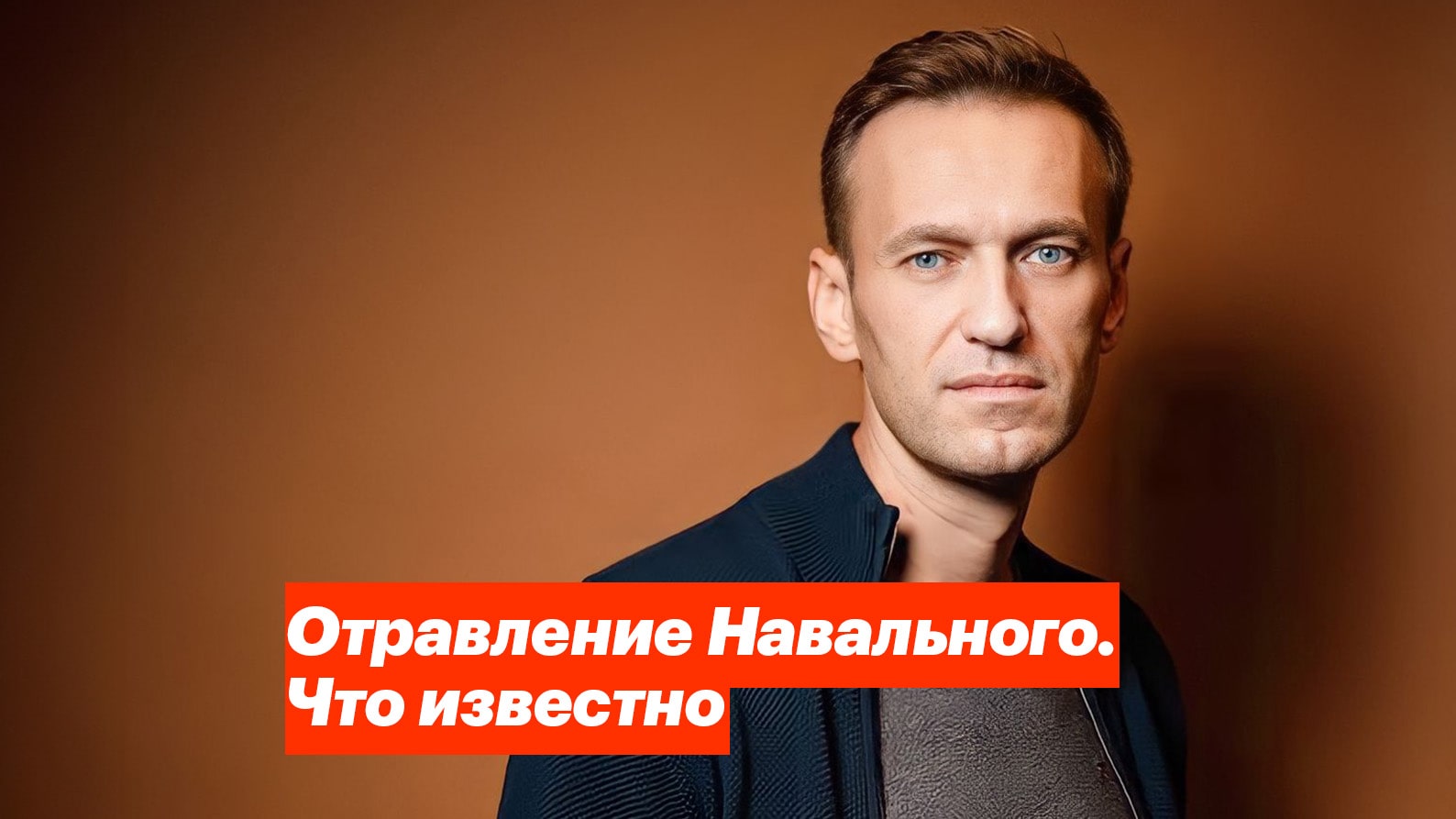
Regional Election Victories
Despite the assassination attempt on Alexei Navalny and the intense pressure on our team, we refused to give up and continued to fight against corrupt United Russia members with our Smart Voting strategy. Our coordinators received strong voter support and were elected as deputies.
In Tomsk, the head of the regional headquarter, Ksenia Fadeeva, and team member Andrei Fateev were elected to the City Duma. In Novosibirsk, Sergei Boyko also secured a deputy seat, along with several members of the "Novosibirsk-2020" coalition he led.

Investigation into the Poisoning
Immediately after the poisoning, it became clear that not only would the Russian authorities not investigate the crime but would also actively obstruct any attempt to do so. The ACF then launched its own investigation. By December 2020, we were able to establish the circumstances of the assassination attempt. We made a film detailing the FSB's plan. The highlight of this story was Alexei's phone call to one of his poisoners, Konstantin Kudryavtsev.

Navalny's Return to Russia
After his medical treatment ended, Navalny announced he would return to Russia to continue his fight against Putin. Alexei arrived in Moscow on January 17 on a Pobeda Airlines flight. Thousands of people had come to meet him, and the authorities were so frightened that they changed the arrival airport. At passport control Navalny was detained, and the following day he was placed in pre-trial detention.
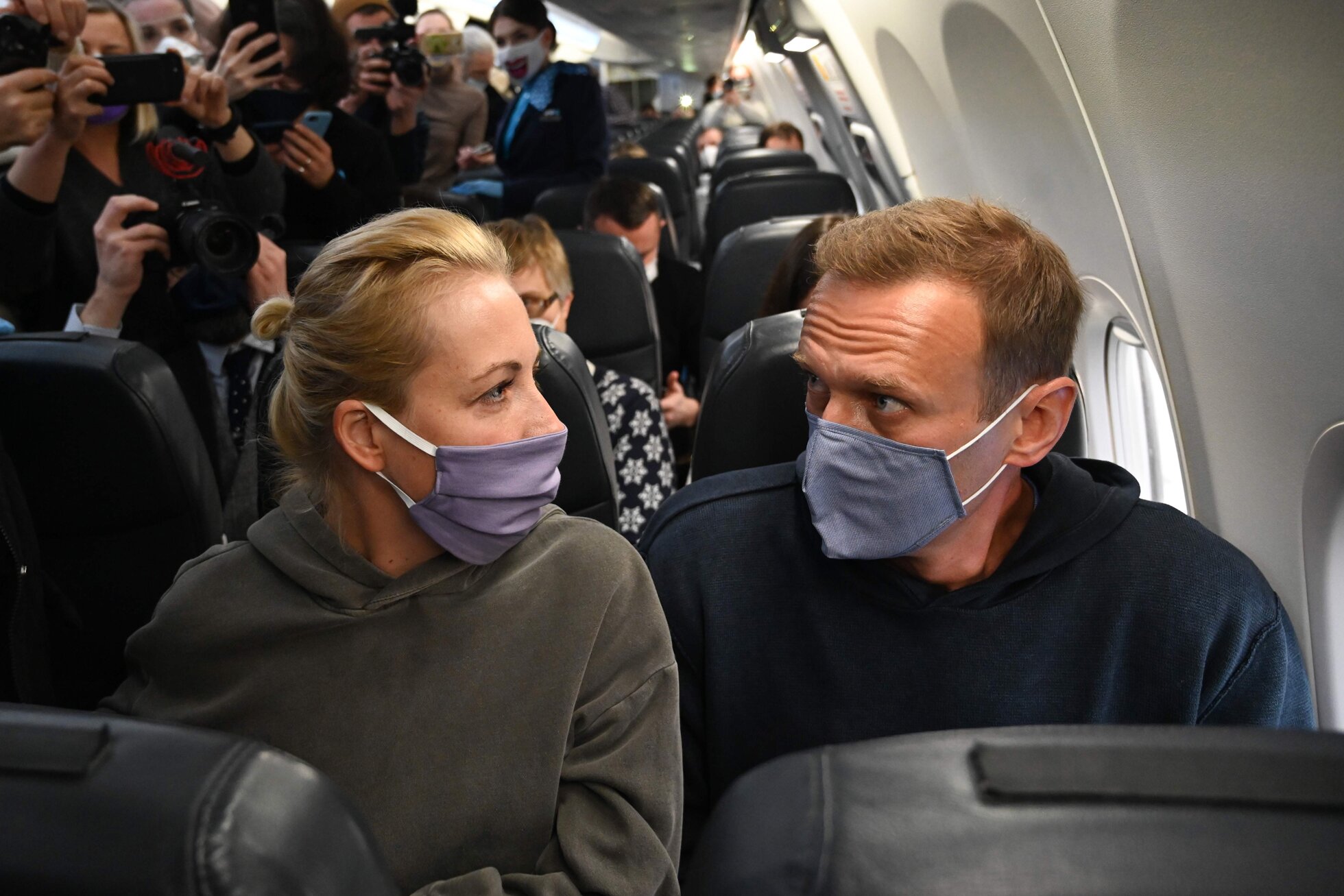
Putin's Palace
Two days after Alexei Navalny's return to Russia, the ACF released one of its key investigations. It focused on a gigantic palace to the cost of 100 billion rubles. It had been under construction and even rebuilt over the course of many years. This palace had been built for one person alone—Vladimir Putin. Almost every Russian has seen this film: the video garnered 132 million views on YouTube.

Support ACF
Help bring about the day when a museum of corruption opens in Putin's palace.
Launch of the 'Free Navalny' Campaign
Immediately after Alexei's imprisonment, we launched the Free Navalny campaign, aimed at drawing as much attention as possible to his detention. The campaign in 2021 kicked off with large protests in many regions of Russia demanding Navalny's release.
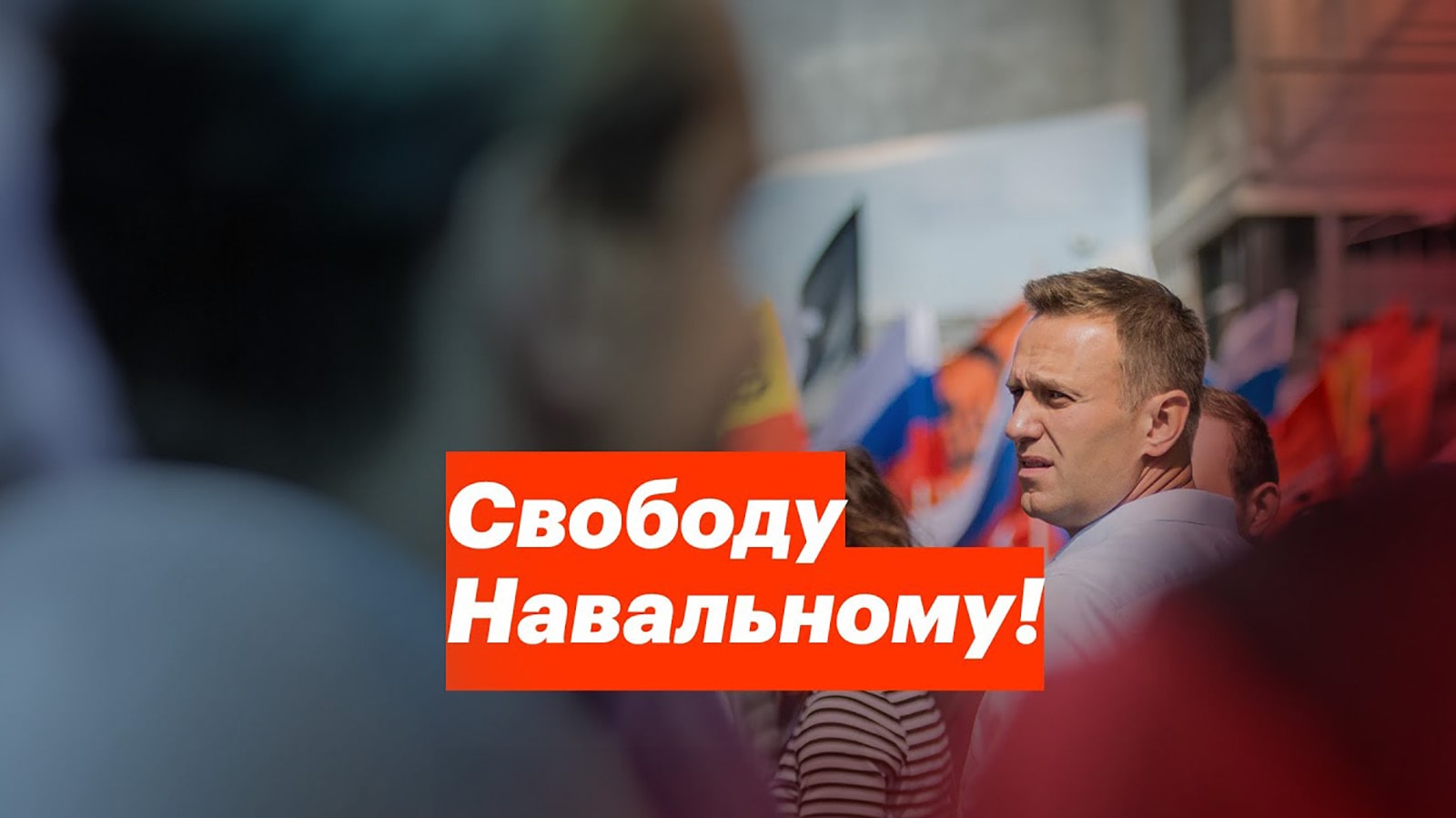
ACF Deemed an Extremist Organization
Despite Alexei being in prison, his organizations—the ACF and Navalny's Headquarters—actively continued their work, releasing investigations and mobilizing people for elections and protests. Putin decided to destroy them—they were officially labeled extremist, and then criminal cases were initiated against former staff and volunteers. We could no longer stay in Russia. To preserve the organization that Navalny had built over many years, we had to relocate it abroad.
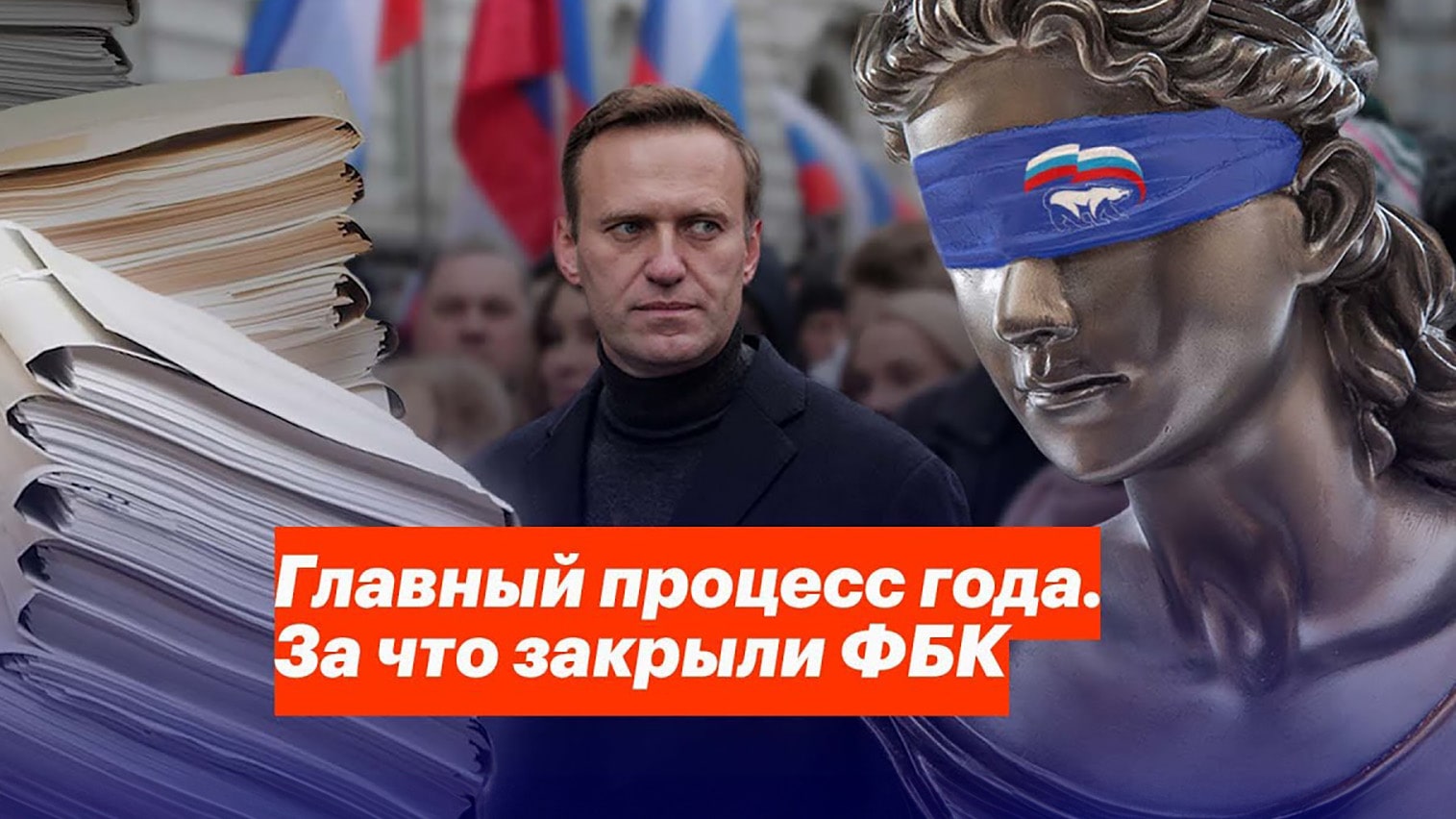
The Launch of Popular Politics
When Putin started the full-scale war with Ukraine, we launched Popular Politics—our media outlet which covers current events. The first videos on the channel were multi-hour livestreams and news broadcasts. Our main principle is to speak the facts in easy, understandable terms. We invite guests and experts on to the channel and give them the opportunity to express whatever opinion they may have, but we may intervene, arguing for our own position if we disagree. This is why viewers love our channel.
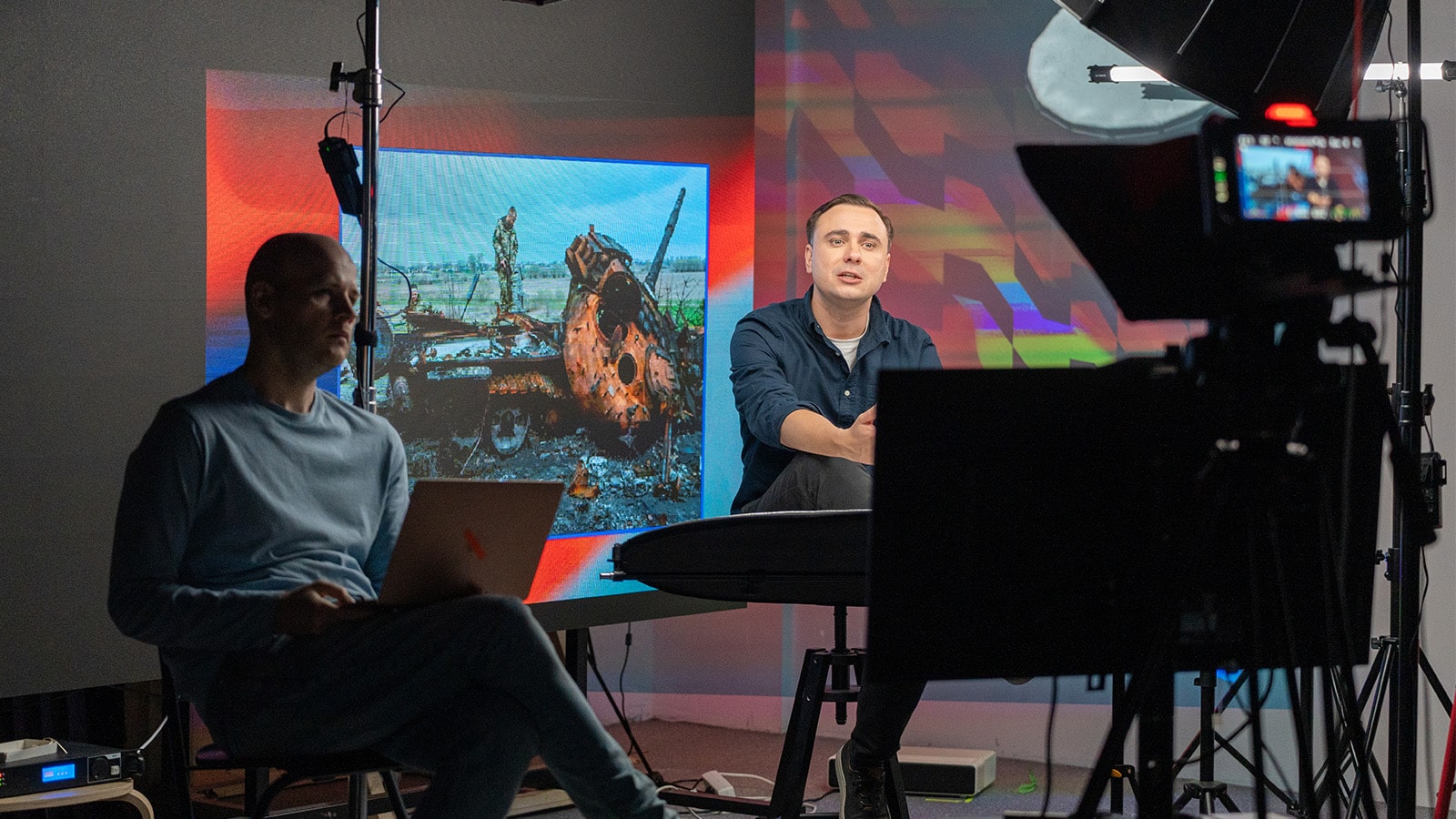
ACF International
On March 22, 2022, Alexei Navalny was sentenced to nine years in a maximum-security colony. In his final statement, he announced the creation of the International Anti-Corruption Foundation, which, in addition to its previous activities, would focus on holding corrupt officials accountable abroad. One of the first projects was the 6,000 List—a list of corrupt officials and warmongers who must be held accountable for their actions.
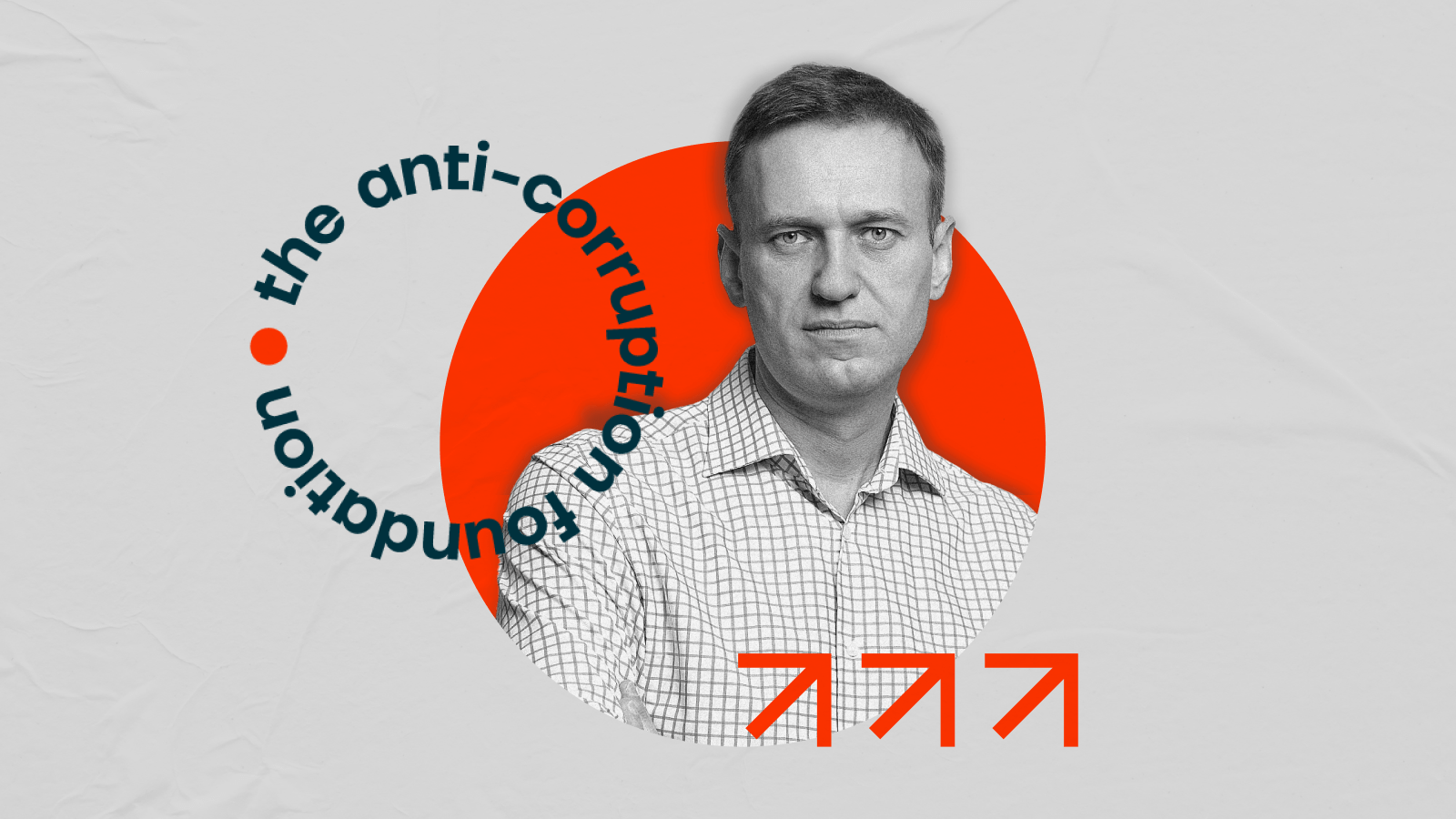
Putin. Miller. Gazprom
In our investigation of Alexei Miller, we revealed how one of the most inconspicuous officials, through personal connections with Putin, became the head of Gazprom. Thanks to this friendship, the gas billions that should belong to the people flowed into the pockets of the dictator and his entourage.

Investigation into Lyudmila Putina
On August 4, 2022, the ACF released an investigation into Putin's ex-wife, Lyudmila. We uncovered how she received billions in corrupt money and foreign real estate in exchange for her silence about the dictator's personal life.

The Oscar Award
In 2023, Daniel Roher's documentary about Navalny won the Academy Award for Best Documentary. The movie shows how Alexei recovered after his poisoning and investigated his own assassination attempt. The film ends with his return to Moscow.

SHIZO
From August 2022, Navalny spent over 300 days in SHIZO (a punishment cell). Here’s how Alexei himself described the conditions:
'A concrete cell measuring 2.5 by 3 meters. Most of the time, it’s unbearable because of the cold and the damp. When it’s hot, it’s stifling, as there is almost no air. The window is tiny, and there’s no ventilation.
At 5 a.m., they take away the mattress and pillow and raise the bed. At 9 p.m., they lower the bed again. There’s an iron table and a bench, a sink, and a hole in the floor. Two cameras are mounted on the ceiling. Visits, letters, and packages are all forbidden. They provide paper and a pen for just 1 hour 15 minutes a day. “Exercise time” is one hour in a similar enclosure but with a glimpse of the sky above you. You and your cell are constantly searched, and your hands must be kept behind your back.'
This is real torture, inflicted by Putin out of a petty desire for revenge against his main opponent. To raise awareness of this internationally, Alexei’s brother, Oleg Navalny, recreated a SHIZO cell and we exhibited it across several European capitals.

Russia's Leading Missile Maker and his Foreign Property
In May 2023, we published an investigation into the foreign property of Boris Obnosov, head of the largest Russian defense holding company. The company produces cruise missiles and guided bombs which Putin uses in the war in Ukraine.
We found out that Obnosov's son-in-law owns a four-story historic house, a penthouse, and several apartments in Prague. In total, we estimated the Obnosovs' property in the Czech Republic to be worth over 100 million crowns or more than 4 million dollars. After publishing the material, we launched a public campaign calling on Western countries to impose sanctions against Obnosov and his family. In the end, Putin's missile maker, along with his daughter and son-in-law, were added to the sanctions lists, and their Czech assets were frozen.

Navalny's Murder
On February 16, 2024, Alexei Navalny was killed in a colony beyond the Arctic Circle in the settlement of Kharp. Putin eliminated his main opponent out of fear of Navalny and his incredible strength.

Yulia Navalnaya Continues Alexei's Work
On February 19, Yulia Navalnaya announced that she would continue her husband's work and fight against Putin as long as he remains in power.

'Traitors' YouTube Series
Six months before his murder, Alexei Navalny wrote a post titled "My Fear and Loathing" about those responsible for Russia's current state. He discussed the traitors within the democratic movement and how indifference and hypocrisy allowed Putin to maintain his dictatorship. The ACF agrees with Alexei's position. We expanded on his article by creating a documentary series about the 90s. Maria Pevchikh detailed the corruption in the late Yeltsin administration, how Vladimir Putin came to power, and who helped him do so.

Concert in Memory of Alexey Navalny
On June 4, 2024 — Alexei’s birthday — a memorial concert titled “This Is Navalny” took place in Berlin. The lineup included Noize MC, Kasta, AIGEL, and Pornofilmy, and the evening became a moment of unity for people for whom Navalny remains a symbol of hope and resistance to dictatorship.
It was more than a concert. It was a way to say out loud what Putin fears most: Navalny will not be forgotten, and his work goes on. Proceeds from ticket sales were directed to supporting political prisoners — those who are paying with their freedom for the right to speak the truth.

Prisoner Swap
On August 1, a historic prisoner swap took place between Russia and several Western countries. After prolonged and intense negotiations, 16 people were released from Russian prisons, including our friends and colleagues—political prisoners Ilya Yashin, Lilia Chanysheva, Ksenia Fadeeva, Vadim Ostanin, and many others. This swap was originally intended to free Navalny from the penal colony. However, at the final stage of negotiations, Putin had Alexei killed, refusing to allow him his freedom. It was Alexei’s strength and importance as a political figure that made it possible to start the negotiation process. The resulting swap was carried out in Alexei Navalny’s name.
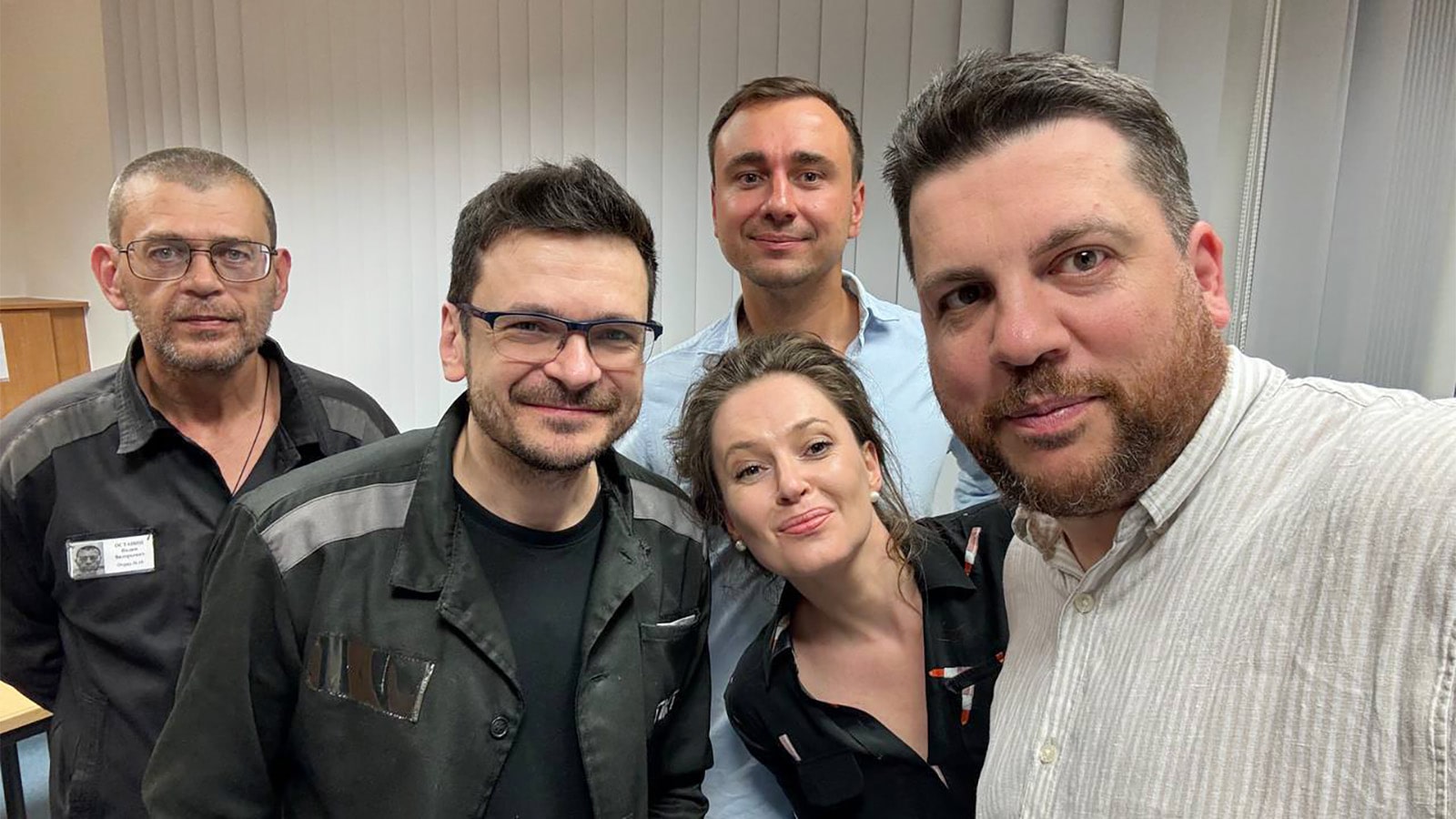
Support ACF
Be a part of the fight against Putin and the war.
